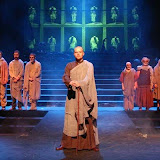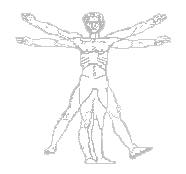Featured Pages: Theatre Biomechanics

 Directing "silent scenes" (no words)
Directing "silent scenes" (no words)

Waiting for Godot
 There is no simple formula for putting on a play. Directing is about unleashing the creative energies of artist collaborators. It is providing "the passion that lights the fires," says Peter Brook.
There is no simple formula for putting on a play. Directing is about unleashing the creative energies of artist collaborators. It is providing "the passion that lights the fires," says Peter Brook.
To put simply, let them work!
Ver much like you about to let your public work. Who do you "make" (your) show? Who is working after lights in the house go down?
Remember, director is a manager.
Remember, they are your tools!
Theatre Books Master Page *
What Is Dramaturgy?
PETER LANG New York Washington, D.C./ Baltimore San Francisco Bern Frankfurt am Main Berlin Vienna Paris 1995 [questia.com]
Playwright Versus Director: Authorial Intentions and Performance Interpretations by Sidney Berger, Jeane Luere; Greenwood Press, 1994 : - Part One: Theories of Authorship and Interpretation - 1: Literary Assumptions About Text - 2: Literature's New Criticism Applied to Theatre - Part Two: Remarks of Playwrights and Directors - 3: Alley Forum: Playwrights, Directors, and the Postmodern Stage - 4: Robert Anderson, Playwright - 5: Sidney Berger, Director - 6: Danny Mann, Director, and Edward Albee, Playwright - 7: Lanford Wilson, Playwright - 8: Robert Wilson, Performer, Director, Writer - 9: Jose Quintero, Director - Part Three: Tiers of Director/Playwright Interchange: Five Case Studies - 10: A "Director's Director" - 11: A Tyrant Director? - 12: A Director's Distortion of a Modern Classic: Arthur Miller's Shift in Stance - 13: A Playwright-Director Opens Up a Classic: Albee's Direction of Beckett - 14: Director, Playwright, and Cast: Caryl Churchill's Approach to Text - Part Four: Theatre Aesthetics and the Law - 15: Contractual Provisions of the Dramatists' Guild, Inc. - 16: Collaboration and American Law - Afterword
The Directorial Image: The Play and the Director by Frank McMullan; Shoe String Press, 1962 - 1: Creativity and the Director - 2: Dramatic Communication and Response - 3: Nature and Pattern of Drama - 4: Potentials of Dramatic Values - 5: Points of Focus - Directorial Image
[Critical Concepts] ***
2007/2008
lesson 1
lesson 2
lesson 3
lesson 4
 |
| Oedipus |


 from Francis Hodge Play Directing : Analysis, Communication, Style
from Francis Hodge Play Directing : Analysis, Communication, Style

